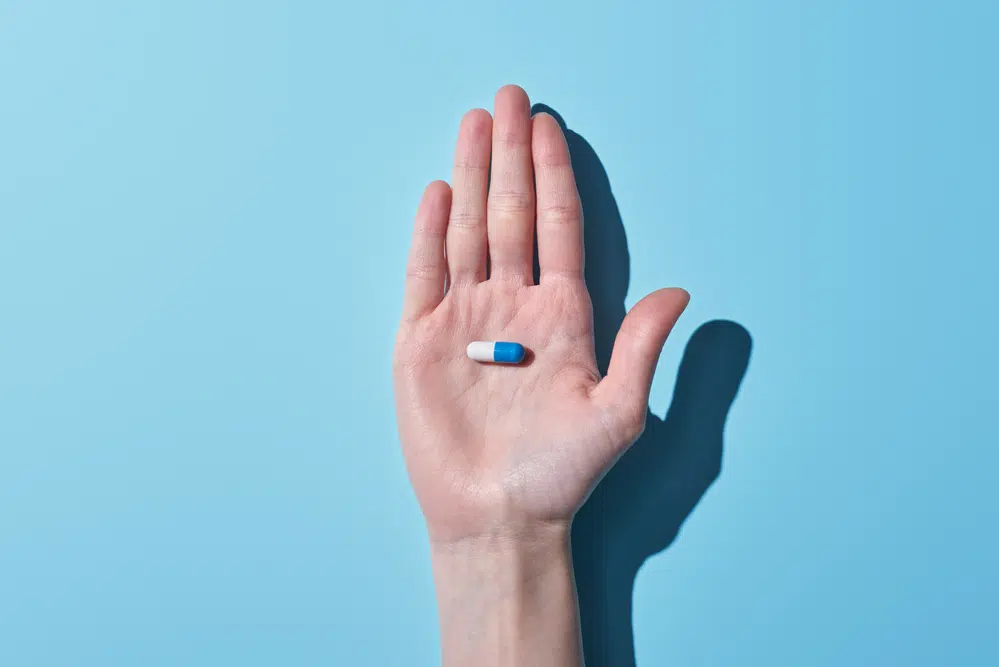Sometimes dubbed a sugar pill, a placebo is a fake treatment that’s given in place of a real medical treatment. What is the placebo effect? An interesting phenomenon that fascinates doctors and researchers, it offers intriguing insights into the human mind and its connection to the body. It has vital implications for research. There are also interesting treatment possibilities. Let’s explore . . .

What Is the Placebo Effect?
When you’re investigating the placebo effect, it makes sense to start with how placebos are used. That information provides a needed foundation to help you understand the placebo effect. From there, you can dive into its effects in research and its possible uses.
How Placebos Are Used
The best research studies don’t simply happen. They’re carefully designed by researchers to provide a fair test of the product or mechanism in question. Placebos play an important role in the type of testing that’s considered the gold standard of clinical testing, according to the National Institute on Aging. In a randomized, placebo-controlled clinical research study, volunteers are randomly assigned to assorted groups. Some groups will receive one of the variations of the drug or treatment being tested. However, at least one group will receive a placebo or standard care.
Patients in clinical tests generally do not know whether they are receiving the treatment or the placebo. In some scenarios, the doctors are also unaware of which patients are receiving which formulations. These trials are called double-blind research studies.
Why use placebos? The idea is to provide a baseline against which new treatment can be measured. Do patients taking the new treatment have better results than patients who only think they are receiving treatment?
The Placebo Effect
Placebos aren’t actually medicine, but many years ago, researchers noticed something interesting. Sometimes, people who took placebos experienced positive reactions. What is the placebo effect? As Harvard Health Publishing explains, it’s more than positive thinking. It is a neurobiological reaction that is triggered by the belief that a treatment has the potential to heal, and it can work even when patients know that they’re taking placebos. Sometimes, the ritual of seeing a doctor for care and taking a pill that’s been prescribed seems to be enough to actually prompt a physical reaction within the body.
Placebos won’t help with every condition. They seem to be most effective against those that are somewhat subjective. Pain, nausea, fatigue, and stress may be problems that respond to the placebo effect.
The Placebo Effect’s Impact in Clinical Research
The placebo effect is something that researchers must keep in mind when designing studies. Traditionally, a treatment was considered a failure if the placebo performed equally well. Recognizing when the placebo effect may come into play is essential in considering a treatment’s efficiency.
There are also ethical considerations when using a placebo in research studies. As Cancer.net points out, placebos should only be used in research studies when the patients participating aren’t harmed by the potential delay in their treatment. In many cases, any delay is offset by access to immediate, state-of-the-art therapy after the study’s end. Patients also tend to appreciate the chance to be at the forefront of the development of treatments that could benefit themselves, their family members, and others with the same medical issues.
Uses for the Placebo Effect
Could there be a use for the placebo effect? It’s possible. While these faux medications won’t shrink tumors or heal broken bones, they may be useful in other scenarios, especially since they don’t come with the side effects that traditional medications do. It’s possible that the placebo effect could be harnessed to offer relief for cancer patients who are struggling with fatigue or nausea after chemo or pregnant women who are battling morning sickness. Since it also seems to be effective against pain, it may be a useful tool for those who battle chronic pain.
Are you curious about the placebo effect and clinical research studies? Discover how you can make a difference in medical science.
Have you ever thought about participating in a clinical research study? You could be a part of history! QPS Missouri is looking for new participants. Since opening its doors in 1994, QPS Missouri has conducted over 1,000 FDA-regulated studies, paying out over $35 million to local participants. Your local participation could have a global impact, as QPS is an international leader in contract research with facilities in North America, Europe, and Asia. Our mission is to accelerate the development of drugs worldwide by enabling breakthroughs in pharmaceutical innovation. This includes several pediatric studies across several age ranges. If you would like to join us in this crucial healthcare mission, consider applying for a clinical research study.
To get started, you simply need to fill out an online application. After that, within 48 business hours, a recruiting coordinator will contact you for your pre-screening assessment. To learn more, please visit the QPS Missouri website, review the study participation process, or check out our list of frequently asked questions.
